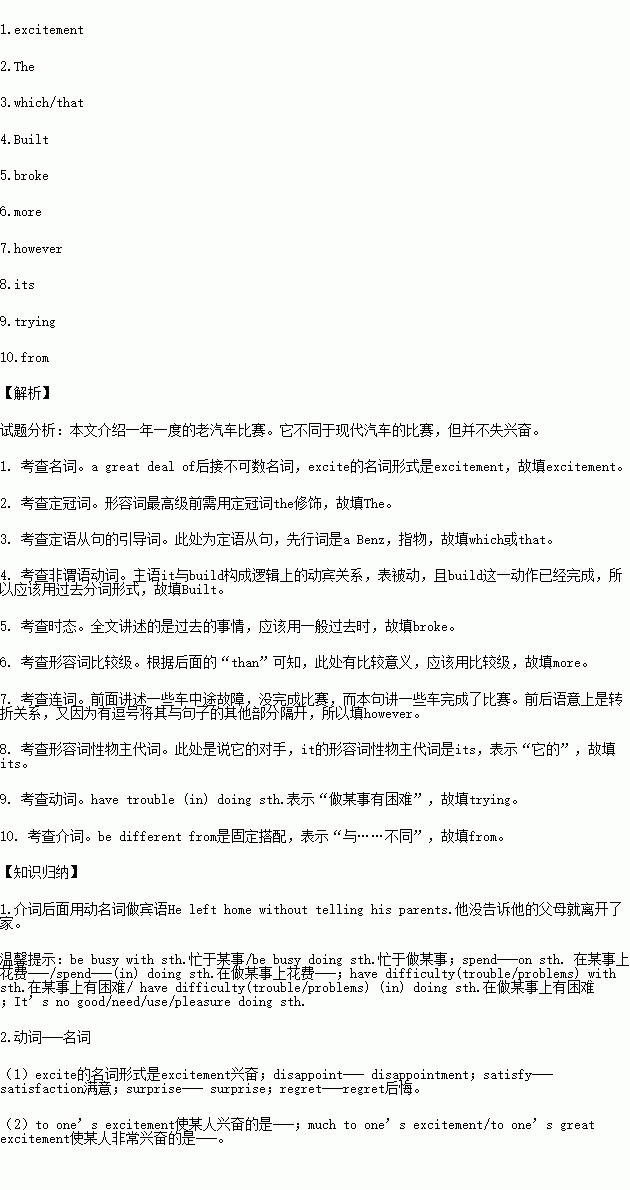题目内容
阅读下面材料,在空白处填入适当的内容(1个单词)或括号内单词的正确形式。
Once a year, a race is held for old cars. A lot of cars entered for this race last year and there was a great deal of 1. (excite) just before it began. One of the most handsome cars was a Rolls-Royce Silver Ghost. 2. most unusual car was a Benz 3. had only three wheels. 4. (build) in 1885, it was the oldest car taking part. After a great many loud explosions(轰响), the race began. Many of the cars 5. (break) down on the way, so some drivers spent 6. time under their cars than in them! A few cars, 7. , completed the race. The winning car reached a speed of forty miles an hour — much faster than any of 8. (it) rivals. It sped downhill at the end of the race and the driver had a lot of trouble 9. (try) to stop it. The race gave everyone a great deal of pleasure. It was very different 10. modern car races but no less exciting.


 y which nationality is listed on your passport.
y which nationality is listed on your passport.